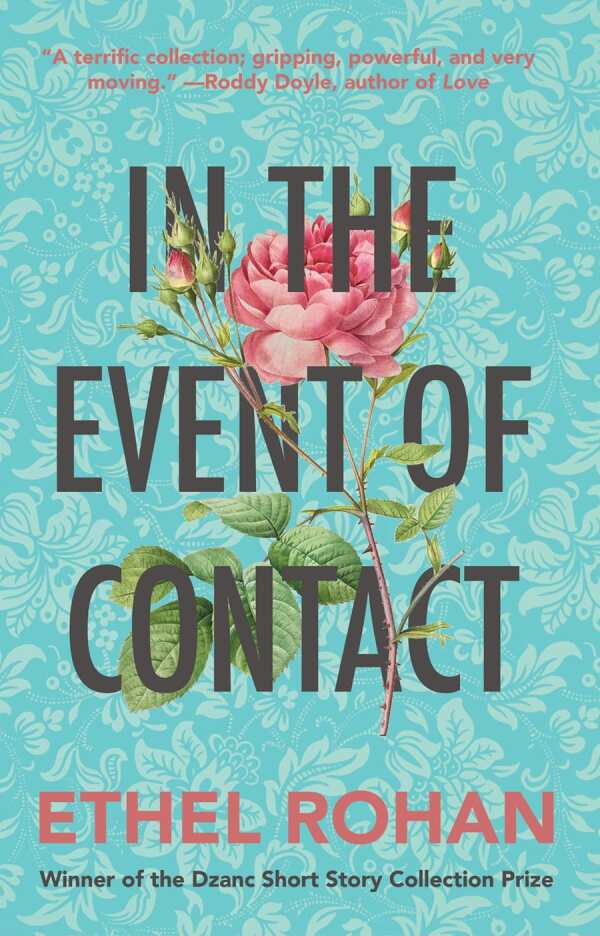In the Event of Contact
Distance, psychological and physical, runs through Ethel Rohan’s short story collection In The Event of Contact. Here, contact, or the lack thereof, signals loss, emptiness, and need. Meanwhile, intimacy is a double-edged sword.
In settings including America to Ireland, Rohan’s characters negotiate treacherous emotional distances in poignant ways. A man in San Francisco who’s cheating on his wife bridles at his Irish mother’s visit. A New York hairdresser discovers how deep her emotional rift is with her parents over the issue of children. In “In the Event of Contact,” the youngest of three identical triplets cannot bear to be touched, causing the sisters to drift apart.
The stories’ women are burdened by their bodies and womanhood. The hairdresser agonizes over whether her marriage could withstand the abortion she had. A mother finally takes her first flying lesson when her uterus hemorrhages. In other stories, young women grapple with men in sexualized encounters, when what they want is intimacy. Older women in “Collisions” and “Any Wonder Left” feel desire, but not sexiness.
By contrast, the men are less encumbered: a boy gets into scraps because he wants to be Sherlock Holmes; a rural teenager lusts after an older, divorced lodger, sees her naked, and has violent fantasies. Even when burdened by physical conditions, as with a traffic warden in a wheelchair and a priest suffering from dementia, they manage to roam—the former through being nursed by a desirable woman, and the latter by wandering out of his house.
Rohan’s plain prose helps to feature the emotional earthquakes these characters undergo while they’re navigating ordinary happenings, and her masterful use of Irish lilts and rhythms helps to reveal intricate emotional distances between those who left and those who stayed behind, even as it nestles the reader deep into her characters’ hearts and minds.
Reviewed by
Elaine Chiew
Disclosure: This article is not an endorsement, but a review. The publisher of this book provided free copies of the book to have their book reviewed by a professional reviewer. No fee was paid by the publisher for this review. Foreword Reviews only recommends books that we love. Foreword Magazine, Inc. is disclosing this in accordance with the Federal Trade Commission’s 16 CFR, Part 255.

